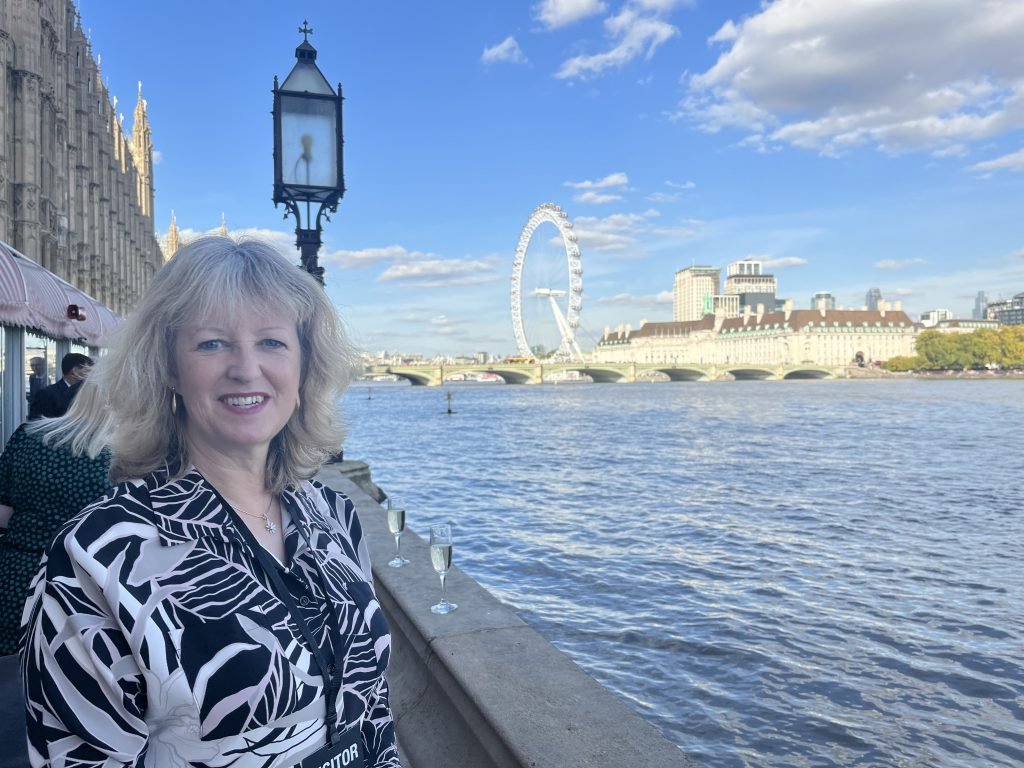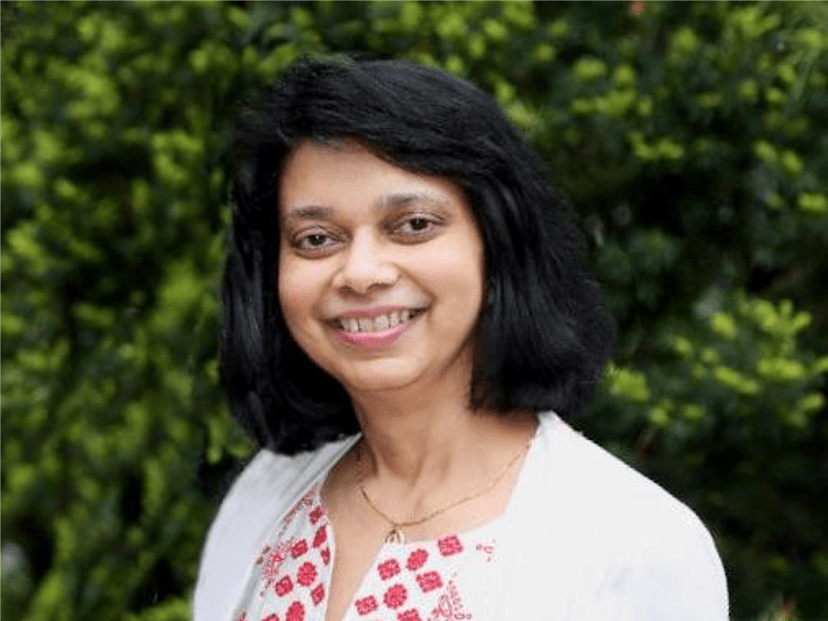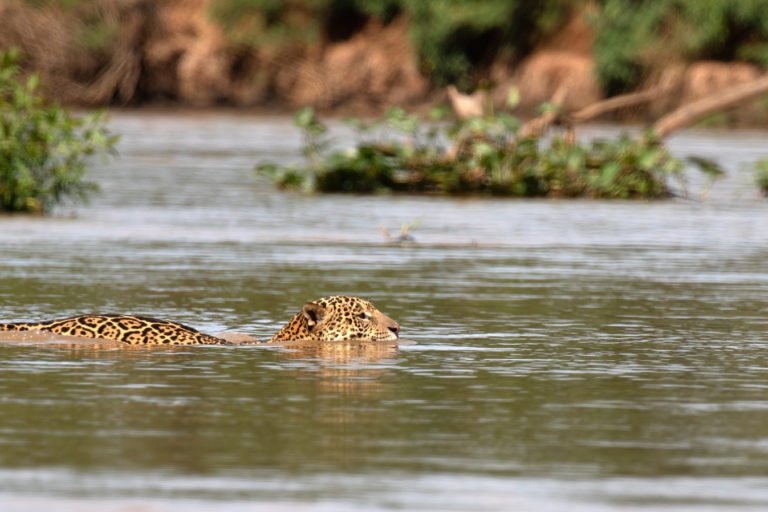The best part of conferences are the insightful conversations that spring up between panels. That was the case at the AgTech NEXT show in St. Louis, Missouri this week, when I started chatting with Solis Agrosciences co-founder Mary Fernandes.
Fernandes is a veteran of the agtech world, having spent time at both Monsanto and Bayer (which acquired Monsanto a few years ago). In May, she launched Solis Agrosciences, a platform that assists ag biotech startups with their research and development needs.
Ag biotech startups can outsource many of the complex processes and equipment requirements to Solis, who will provide the required tools and talent for creating and growing genetically-modified plants.
During lunch at the show this week, Fernandes (MF) shared her journey from Big Ag to a startup, along with many other thoughts on the future of biotech, role of farmers, and how her experience as a woman and an immigrant has informed her work.
AFN: First things first: What led you to ag biotech?
MF: I started out studying microbiology, so I’m a microbiologist. And I started in India, so I’m an immigrant. I came out of school and the university gave me a professor job.
Back then, the opportunities were limited. And I knew I wanted to do more molecular biology research. That’s what led me to apply to grad school. I really worked really hard to finish my PhD in four years. Then I moved to Texas, for personal reasons.
I pivoted and started working in molecular biology, working on fungal genetics and chemistry, microbiology there. Then I realized that if I want to go back to academia, I would need to do a whole other postdoc again, because that’s the postdoc grind. So I had two options: either go back and do another postdoc or build another career. So I decided to go for an industry job.
AFN: You went on to Monsanto eventually.
MF: I had never worked with plants before. I remember being in the interview and saying, “Are you sure?” I didn’t know anything [about plants]. They said, “Well you can work in all these different systems like bacteria and yeast and fungi. You can figure out plants.”
I knew nothing about industry — I only knew the academic world. And you have to understand that being an immigrant, everything was new to me [about the United States].
At that point. I could have easily gone into pharma. And I did interview with some pharmaceutical companies. Then I looked at startups and I looked at big companies. For personal reasons, I chose to go with a bigger company. Why Monsanto? Well, Monsanto has always been very progressive. It was one of the first multicultural panels I was at over 20 years ago. I felt comfortable. I also thought it was a great opportunity to actually do something tangible in agriculture: use my skills to build products.
AFN: Did you know you had an entrepreneurial side even back then?
MF: I’ve always approached everything I did, even within the confines of a big company, with that mindset. If I’m standing up a functional platform, it’s the same thing [as a startup]. You’re hustling; you’re trying to get funding; you’re trying to hire; you’re trying to build things from scratch; things that didn’t exist before. You’re getting stakeholders to buy into it. You’re getting clients who are internal, but you’re still selling. I’m comfortable with that. I actually enjoy it. I thrive on building things and leading teams and connecting people.
AFN: How did you get from corporate to starting your own company?
MF: I might have stayed on at corporate if not for the pandemic. We talk about Covid and being stuck at home for a couple years, and we talk about the great resignation. But for me it was more like a great reflection: “What do I want to do and my next the next phase of my life? Can I do something different and going back to my passions, which is building, having that entrepreneurial mindset? And I checked with my family, and they were like, “Yeah, you should do this; you held off on it for so long. We’ll support you.”
Another motivating factor was, even though I was at corporate, I always was involved in the community and in the entrepreneurial ecosystem. I was mentoring women and minorities and companies and also supporting various St. Louis-based organizations.
AFN: What do you love about Solis Agrosciences?
MF: When I started in May, we had one offering. We were making new varieties of soybean. Now we have over a dozen. We want to ensure that all of these startups with funds don’t feel like they need to start from scratch. All these complex tools and processes — it’s so redundant. It’s a waste of resources and it’s so difficult for them to hire people and bring on board the IP and build the infrastructure, whether it’s greenhouses or lab space. Yes, you can lease lab space, but it’s not that easy to build and lease greenhouse space, for example.
At the end of the day, if you’re making a product in agtech, you actually need to get hands-on. I think scientist founders don’t get enough credit for the work they put into building their companies. It’s always easy for VCs to look at, “Oh, this is the next big software unicorn.” Yes, maybe you can scale that. But you can’t feed the world on software.
AFN: Where do the farmers fit in to the future of agetch?
MF: Someone at the event this week was saying we can’t put the burden of change completely on farmers. We have to understand where they’re coming from and not force them. We have to recognize the work the farmers do. We’ve got to support the farmers to support plant science and agriculture. And it’s important to not wait until we’re starving and don’t have food.
US farmers have done such a good job of bringing prices down, making food accessible and cheap. And we don’t think about it. Other countries are suffering from famines and droughts and wars. And food is a much more important topic for them.
AFN: We’ve lost connection with the value of food in some ways. As an immigrant, do you feel like you have a different experience?
[Food insecurity] is easier for me to recognize, having come from a different place. Growing up in India, a lot of food was rationed because the country had gone through a couple of wars, and we knew we had to preserve food.
There is no rationing of food anymore [in India]. The middle class [in India] doesn’t need to have food ration anymore. It’s very easily available because of globalization and the economy developing. But one event could just change the whole equation.
AFN: Any advice to other startups?
MF: I would say just do it if you feel like you have ideas and you can make a difference. It’s never gonna be easy, but it’s needed. All voices are needed.
It’s one thing for people to say, “You should start a company.” It’s another for people to actually see a woman, an immigrant, and a single mother do it. I want to encourage more women, and encourage more immigrants.
Anyways, I’m an optimist. I think we can always try to do the best we can.


![[Podcast] Inside Look at SIMPAS Technology with AMVAC’s Jim Lappin and Caleb Schultz](../ext/resources/images/social-media/PFD-Podcast-logo.png)









